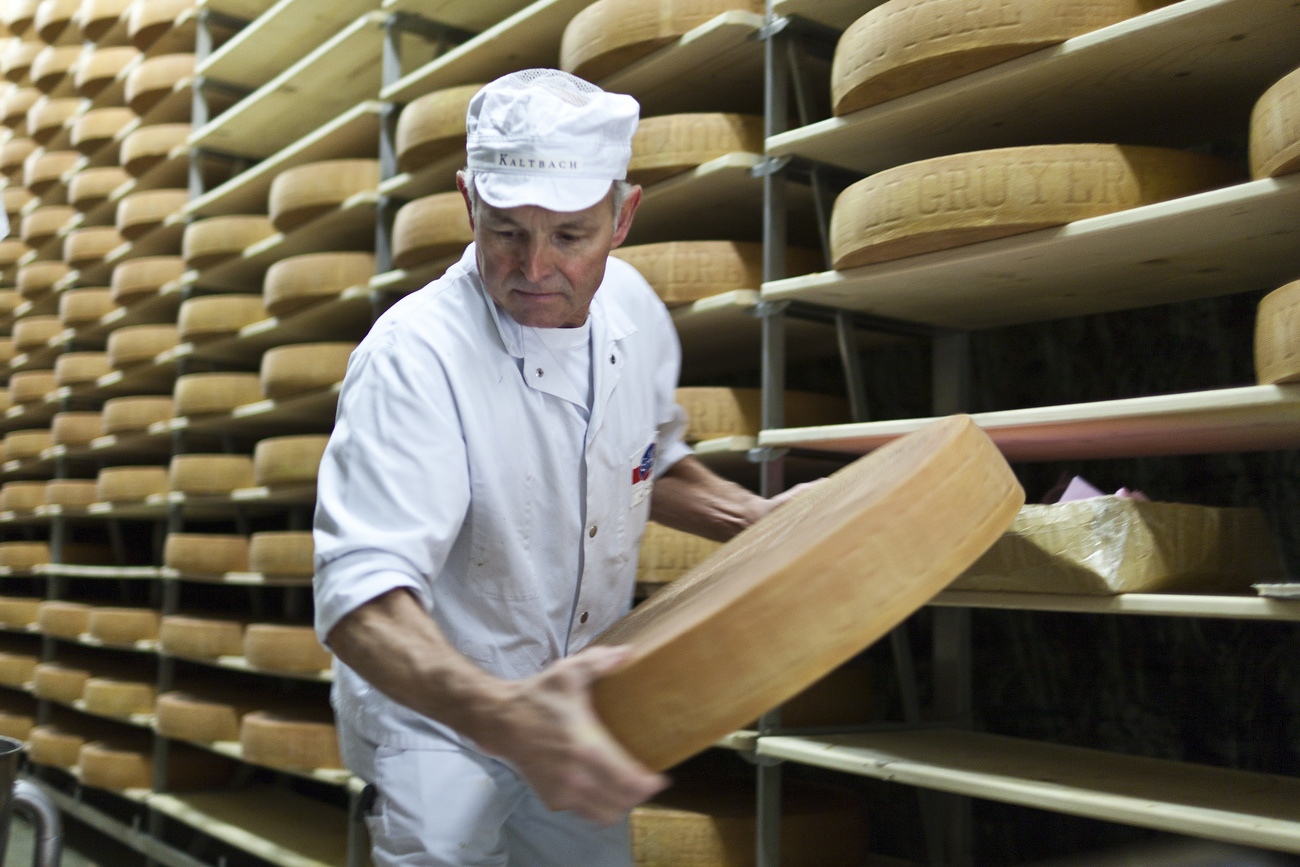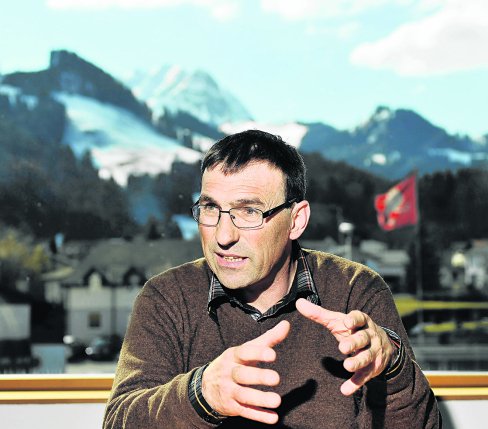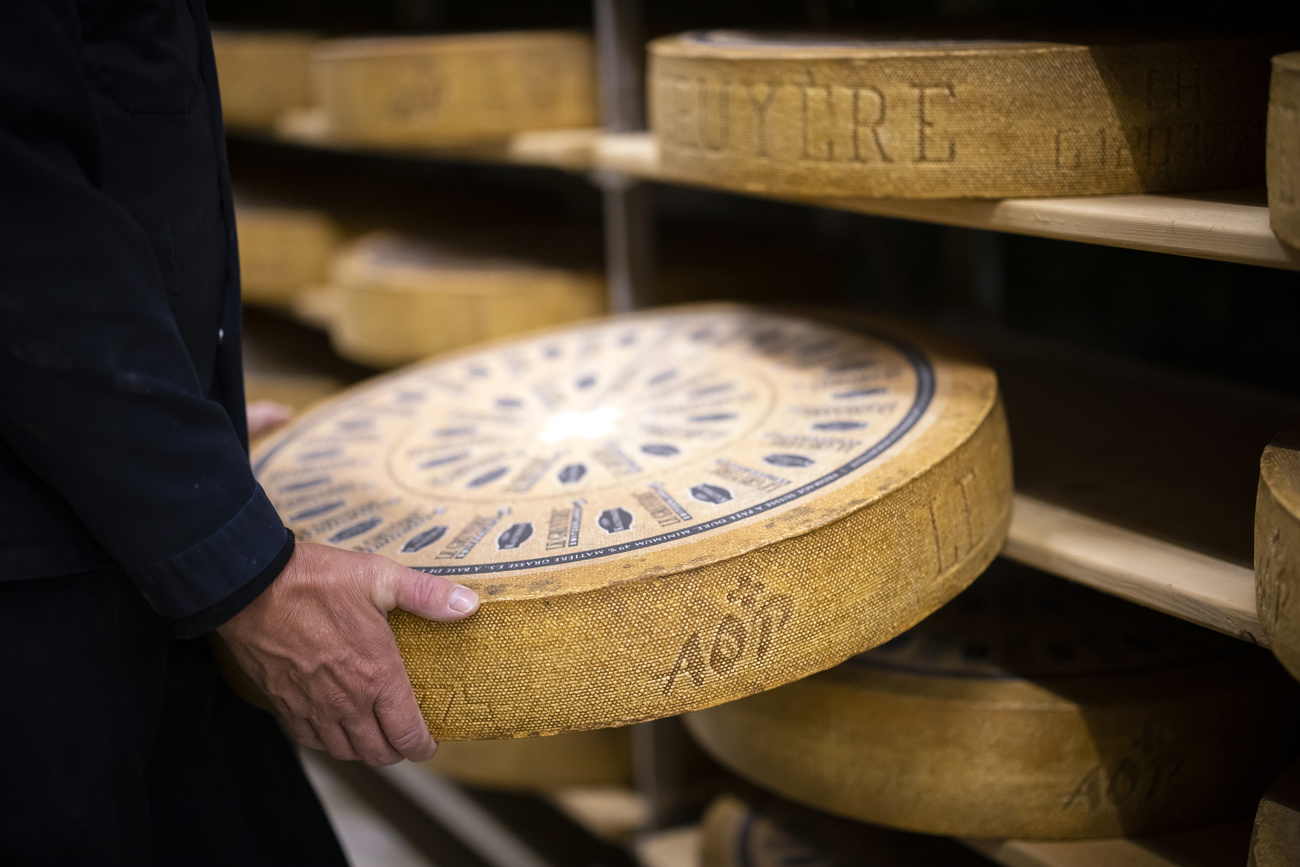‘Gruyère’ becomes a generic name in United States

In the United States, a federal appeals court has decided that the name “Gruyère” is a generic term. Any cheesemaker can call its cheese “gruyere”. Swiss and French Gruyère producers worry that other countries will follow suit.
March was catastrophic for “Swissness”. Emblematic Swiss products ran into serious problems: Credit Suisse collapsed, and UBS was forced to purchase it. Toblerone will have to remove the Matterhorn from its packaging. And the name “Gruyère” has officially been demoted to a generic term (“gruyere”) in the US.
The Credit Suisse story has been widely covered. Toblerone will probably not suffer too much, even though the Swiss feel emotional about its Matterhorn logo. The American agri-food multinational Mondelez, which owns Toblerone, decided to manufacture some of the famous triangular chocolate bars outside Switzerland in Slovakia. As a result – due to the strict norms of “Swissness” legislation – the packaging can no longer use national symbols like the Matterhorn. This legislation, backed by parliament, is designed to defend the value of the “made in Switzerland” label. The iconic mountain will be replaced with a generic one. Thankfully Toblerone can keep its bear – symbol of the capital city of Bern.
Swiss and French Gruyère producers have a more bitter pill to swallow. An appeals court in the state of Virginia in the US has upheld a prior ruling that the name “Gruyère” cannot be restricted to cheese produced in specific areas. The term “gruyere” is now considered generic.
A ruling months in the making
Over a year ago, in a dispute between two Gruyère consortiums and the United States Dairy Export Council (USDEC), a US federal district court had already ruled that cheese can be labelled “gruyere” no matter where it is made, as long as it meets certain minimal criteria.
Generic gruyere sold in the US has to meet the guidelines set by the powerful Food and Drug Administration (FDA), which regulates food safety. The FDA has its own definition of what constitutes gruyere: a cheese with small holes that has been aged for at least 90 days. In Switzerland, Gruyère is aged for 5 to 18 months and does not have holes.
The appeals court ruling stresses that the FDA does not impose any geographic restrictions on cheese labelled “gruyere”.
USDEC, which represents the interests of American dairy producers, joined forces with two companies to oppose the Swiss Interprofession du Gruyère and its French counterpart, the Syndicat interprofessionnel du Gruyère. It is clearly savouring its victory.
“This is an outstanding result for manufacturers and farmers here in the United States,” said USDEC president and CEO Krysta Harden in a press release. “This sets a terrific precedent for the right to use common food names in the United States. Now we need other countries to likewise stand up for what’s right and defend that use just as strongly.”
It’s enough to make defenders of Swiss and French Gruyère tear their hair out. This cheese was first made in the 12th century in the mountains around the town of Gruyères in canton Fribourg, and its depth of flavour comes from Alpine grasses. The European Union awarded it a “protected designation of origin” (PDO) status in 2011. This label certifies products whose ingredients and manufacture are rooted in a distinct geographic area. Swiss Gruyère is made according to particular specifications.
In France, Gruyère also has production requirements, and a 2013 EU decision ruled that it has to distinguish itself from Swiss Gruyère by containing small holes (obtained by higher temperatures during the ageing process). Since the 2013 decision, the 3,500 tonnes of French Gruyère produced annually have benefited from a “protected geographical indication” (PGI) designation for products closely associated with a geographic area.
Supreme Court case might be costly
Julien Couval, president of the Syndicat Interprofessionnel du Gruyère in France, said: “We feel that this decision [in the United States] is unacceptable. The fight to stop the theft of Gruyère’s reputation is a priority we share with our Swiss colleagues.” He did not reveal any details about how he intends to proceed.
Philippe Bardet, director of Interprofession du Gruyère, which protects the interests of Swiss Gruyère, is also trying to figure out how to move forward. Appealing the case to the US Supreme Court could be expensive, although the cost has not yet been estimated. Would it be worth it? “Of the 32,000 tonnes of [Gruyère] we produced in the last two years, we sold 4,000 tonnes in the US,” Bardet said. “It’s significant, but it only amounts to 1% of the cheese market over there.”

Bardet feels that educating consumers is more important – by highlighting the quality and traceability of Gruyère compared to cheeses produced in the US.
“Americans are not idiots. They know how to recognise a good product,” he said. “The problem today is due more to inflation than to the Virginia court decision. Consumers who know the value of our product will simply buy less of it. Our product is expensive. [Swiss Gruyère sells on average for CHF50 ($56) per kilogramme in the US, which is twice the price of gruyere made in America.] So most consumers prefer to buy fake gruyere.”
This fake gruyere comes in large part from Europe – from countries like Germany, Denmark, or Austria. “The protection of Gruyère in Europe is hollow,” said Bardet. “As soon as you go beyond Europe, there’s no protection.” A country like Denmark can therefore produce a nameless cheese and then export it to the United States and call it “gruyere” or “Alpine-style cheese”. It is unclear how much generic gruyere is sold, as official statistics are lacking.
The Swiss government regrets the US appeals-court decision, according to Jonathan Fisch, spokesperson for the Federal Office for Agriculture. But he explained that while Switzerland supports the Interprofession du Gruyère, it is up to the association and its French counterpart to take steps to defend their products.
Diluting the reputation of Gruyère cheese
Pierre-André Page, a farmer and parliamentarian with the right-wing Swiss People’s Party, is sensitive to this issue. He asked the government – in vain – for more information on the case and for political intervention.
“I remain at the disposal of the Interprofession du Gruyère and will do everything I can at the political level,” Page said. “But I must admit that when I saw the appeals court decision, [I felt the situation was hopeless].”

“We don’t have a free-trade agreement with the United States,” the parliamentarian added. “But we could have included a clause protecting the Gruyère brand in our agreement to purchase F-35 American combat aircraft. Unfortunately the contracts had already been signed.” Switzerland will buy 36 of the fighter jets for over CHF6 billion.
The problem for Gruyère producers is not primarily financial, though it is difficult to estimate future losses due to the US decision. It’s more the risk of diluting the reputation and expertise associated with Gruyère.
Bardet worries about USDEC’s suggestion that other countries should follow in America’s footsteps. Although Gruyère is protected in the EU, cheese-loving countries like Australia or New Zealand could be guided by the US decision.
In Latin America, Bardet feels that Switzerland ought to try to protect products like Gruyère in its negotiations with the Mercosur trade bloc. “But it’s at a standstill,” he said. “In Brazil, for example, it doesn’t seem to be a priority for President Lula.”

In compliance with the JTI standards
More: SWI swissinfo.ch certified by the Journalism Trust Initiative














You can find an overview of ongoing debates with our journalists here . Please join us!
If you want to start a conversation about a topic raised in this article or want to report factual errors, email us at english@swissinfo.ch.